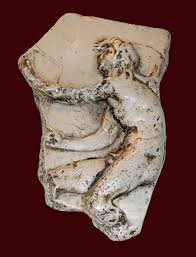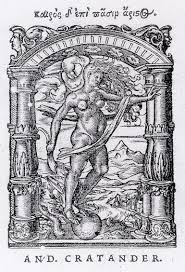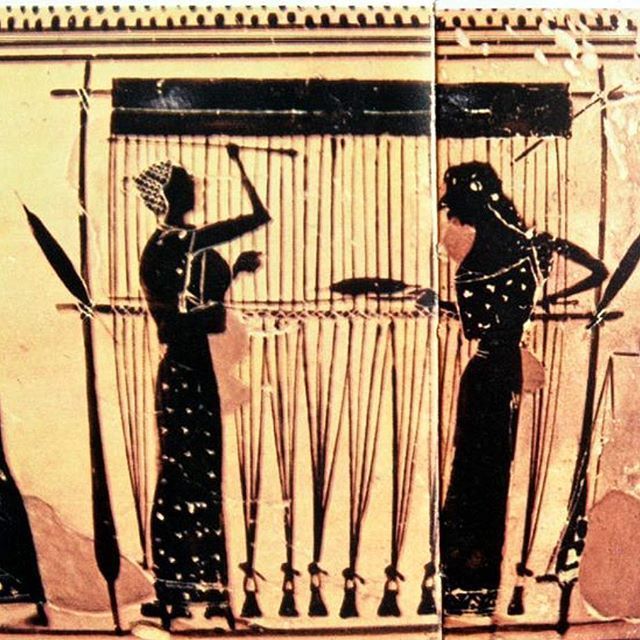On March 25 at 9 AM in Princeton, twenty-one people began to gather virtually from five time zones to embark on a graduate half-seminar under my direction on Plato’s Statesman. It was one of the first Princeton classes to be born on Zoom, as, by design, it was scheduled to meet for six weeks only, and so began only after spring break and what became the great migration to remote teaching. So we had to create a community online from the outset (with participants including graduate students in Classics, Philosophy, and Politics, an undergraduate senior, visiting students from Paris and Rutgers, a visiting fellow from Berlin, and a faculty colleague in Classics) as we embarked on the study of what is widely regarded as a complex, abstruse, and sometimes obscure Platonic dialogue—but which turned out to offer profoundly relevant ideas for understanding the politics of the current pandemic.

The Statesman sets out to identify the eponymous “statesman” (politikos, in Greek), by identifying their characteristic form of expertise. So it asks: what is the nature of professional political expertise, or statecraft (politikē, short for the idea of a politikē technē or politikē epistēmē)? And it answers by seeking to identify all the other kinds of knowledge that are relevant to a political community’s flourishing, and then distinguishing what makes statecraft different from them. Generalship helps defend the community from external threats from other societies, keeping its members safe from invasion or attack; as to internal threats arising from the natural elements, carpentry and bricklaying keep its members housed, while weaving keeps them clothed, and farming keeps them fed. And if the sciences of public health had existed in fourth-century Greece, they would have fit naturally into the dialogue’s map of civically relevant kinds of knowledge, as ways of defending the physical health of individuals and of the whole community.
Yet by the same token, Plato’s Visitor from Elea, an anonymous figure portrayed as visiting Athens for a conversation with an Athenian youth named Socrates in the presence of the elder and more famous philosopher of that name, would have had to press the same issue for public health as he does for all the other professions. For, he argues, if generalship knows how to wage war, it is not itself capable of deciding whether the moment is ripe for making war or instead for pursuing peace. Statecraft rules over the generals—think of civilian control of the military, though the analogy is not exact—and so it must serve an overall coordinating role in relation to epidemiology and public health. Those sciences have their own demarcated areas of expertise, but there are other sciences relevant to the public good too (today, mental health; exercise and social relationship experts; and economists come to mind). None of these professions can be given carte blanche to pursue their own goals without taking into account the ways in which they need to be coordinated for the good of the whole community. That is the role of politics, which requires a proper practice of a statecraft capable of weighing and ultimately determining what action, at what moment, will best coordinate among all the professionals and all the members of society in achieving the public good.
 In short, as I have written about the dialogue previously (Method and Politics in Plato’s Statesman, CUP 1998), it teaches that the art of politics is in essence an art of timing. The idea that there is a single right action at every moment, that politics means mastery of the flux of politics so as to identify the kairos (the opportune moment) for every action, has sometimes seemed to be an artefact of Plato’s attachment to an objective metaphysics that can obviate the disagreement arising from political pluralism. But in the COVID-19 era, that criticism looks different. For the question of when to lock down, when to lift restrictions, and how to marshal the various competing professional priorities in doing so (epidemiology, mental health, economics, constitutional law), fits precisely into the dialogue’s framework, which counsels that politicians alone have the responsibility of making that call for the good of the whole community. We know, of course, that politicians may make that call differently. But we are much more attuned now to the idea that there are better and worse ways to call it, and that comparisons can be made of how well they do on a common challenge.
In short, as I have written about the dialogue previously (Method and Politics in Plato’s Statesman, CUP 1998), it teaches that the art of politics is in essence an art of timing. The idea that there is a single right action at every moment, that politics means mastery of the flux of politics so as to identify the kairos (the opportune moment) for every action, has sometimes seemed to be an artefact of Plato’s attachment to an objective metaphysics that can obviate the disagreement arising from political pluralism. But in the COVID-19 era, that criticism looks different. For the question of when to lock down, when to lift restrictions, and how to marshal the various competing professional priorities in doing so (epidemiology, mental health, economics, constitutional law), fits precisely into the dialogue’s framework, which counsels that politicians alone have the responsibility of making that call for the good of the whole community. We know, of course, that politicians may make that call differently. But we are much more attuned now to the idea that there are better and worse ways to call it, and that comparisons can be made of how well they do on a common challenge.
 And far from ignoring political conflict, the whole final section of the dialogue dwells on the challenge of shaping a society so that people with fundamentally opposed outlooks can be brought to agree on what the kairos requires, even in matters of life and death—the chosen example being military conflict, one that is easily transposed to domestic conflicts around mask-wearing and other social distancing measures. The Visitor stresses that some people are naturally hawkish, while others are naturally doveish, and he highlights the ways in which this temperamental divide can become a source of both profound ideological disagreement and enduring social cleavage. Indeed he highlights the prospect that each faction will be tempted to support their children marrying only within their own group. This sounded somewhat outlandish when I began studying the dialogue thirty years ago, but comparing polls done in 1958 and 2016 has highlighted its expression in exactly these terms, as the proportion of people who would support their child marrying a member of the other main political party has plummeted, especially for those identifying with a particular party (“In 1958, 33 percent of Democrats wanted their daughters to marry a Democrat, and 25 percent of Republicans wanted their daughters to marry a Republican. But by 2016, 60 percent of Democrats and 63 percent of Republicans felt that way,” Lynn Vavreck, “A Measure of Identity: Are You Wedded to Your Party?" The New York Times, January 31, 2017).
And far from ignoring political conflict, the whole final section of the dialogue dwells on the challenge of shaping a society so that people with fundamentally opposed outlooks can be brought to agree on what the kairos requires, even in matters of life and death—the chosen example being military conflict, one that is easily transposed to domestic conflicts around mask-wearing and other social distancing measures. The Visitor stresses that some people are naturally hawkish, while others are naturally doveish, and he highlights the ways in which this temperamental divide can become a source of both profound ideological disagreement and enduring social cleavage. Indeed he highlights the prospect that each faction will be tempted to support their children marrying only within their own group. This sounded somewhat outlandish when I began studying the dialogue thirty years ago, but comparing polls done in 1958 and 2016 has highlighted its expression in exactly these terms, as the proportion of people who would support their child marrying a member of the other main political party has plummeted, especially for those identifying with a particular party (“In 1958, 33 percent of Democrats wanted their daughters to marry a Democrat, and 25 percent of Republicans wanted their daughters to marry a Republican. But by 2016, 60 percent of Democrats and 63 percent of Republicans felt that way,” Lynn Vavreck, “A Measure of Identity: Are You Wedded to Your Party?" The New York Times, January 31, 2017).
 That ideological and social division, Plato insists, is the most serious threat to civic unity and public welfare—and it is precisely what the role of statecraft must seek to alleviate and to avoid. To do so, Plato compares statecraft to weaving. For weaving combines opposite kinds of threads (the warp and the woof), binding them together in a lasting way that forms a protective and enduring fabric. Just so, statecraft properly performed is a task of civic weaving, bringing people together by fostering shared opinions and beliefs as well as those cross-factional alliances, whether friendships or marriages, that can bring people out of their divisions and into civic interactions that will enable them to exercise their public roles, including holding public offices, in a way that takes into account the good not only of their own group but of the whole.
That ideological and social division, Plato insists, is the most serious threat to civic unity and public welfare—and it is precisely what the role of statecraft must seek to alleviate and to avoid. To do so, Plato compares statecraft to weaving. For weaving combines opposite kinds of threads (the warp and the woof), binding them together in a lasting way that forms a protective and enduring fabric. Just so, statecraft properly performed is a task of civic weaving, bringing people together by fostering shared opinions and beliefs as well as those cross-factional alliances, whether friendships or marriages, that can bring people out of their divisions and into civic interactions that will enable them to exercise their public roles, including holding public offices, in a way that takes into account the good not only of their own group but of the whole.
Nor does the dialogue shy away from the problem of consent that has become so vexing a problem of pandemic politics. It contemplates the fact that statecraft’s tools consist of compulsion as well as persuasion. And the Visitor insists that compulsion used on the basis of expert knowledge and in caring for the public good is anything but ‘an unhealthy mistake contrary to the expertise in question’ (296c). Yet the dialogue is arguably itself designed to lay the ground for a public welcome for proper statecraft, acknowledging that many people can’t ‘stomach’ (duskheranantōn, 302c)the thought of it, but seeking to diagnose and so alleviate their resistance. Consent isn’t always possible to obtain in advance of political imperatives in an emergency. But it is something that good statecraft can and must bring about as it cares for people’s welfare understood in the most holistic way. It can be born from public trust in good political design.
Ultimately, then, the Statesman defines true statecraft as follows—in a new translation that I honed in consultation with the seminar: ‘the form of expertise which rules over all of these [other forms of expertise], and cares for the laws and all that is to do with the city, and weaves everything together in the most correct way—this we would most justly, it seems, call statecraft (politikē), encompassing its power with the name of the public domain (tou koinou)’ (305e2-6). But Plato is also acutely aware, here and elsewhere, of the damage that fakery and abuse in politics can do. As we were concluding our study of the Statesman, we decided to combat the risks of isolation and disorientation that the pandemic poses, by metamorphosing into a voluntary reading group on Plato and Aristotle for another six weeks, in which incoming graduate students in political theory are joining recently graduated students of philosophy and everyone in between to read Plato’s Republic and Aristotle’s Politics. And as we opened Book I of the Republic this past week (a week in which my teacher and advisor Myles Burnyeat, the great Plato scholar who had himself read the Laws in Leningrad in the Russian he had learned through the British army, would have been commemorated in a University of Cambridge Classics Faculty memorial service), we found a discussion of the peculiar injustice that lies in a public official exempting themself from the rules that they impose on others, a scandal that was unfolding in the UK with regard to the political advisor Dominic Cummings even as we were meeting. In this moment of global and individual peril, it has been a gift to be able to join together to forge a deeper understanding, combating what graduate student participant Max Ridge called “the quarantine malaise” by (in his words) “reasserting the relevance of ancient texts in times of change.”
Originally published on the Princeton University homepage on June 5, 2020.
